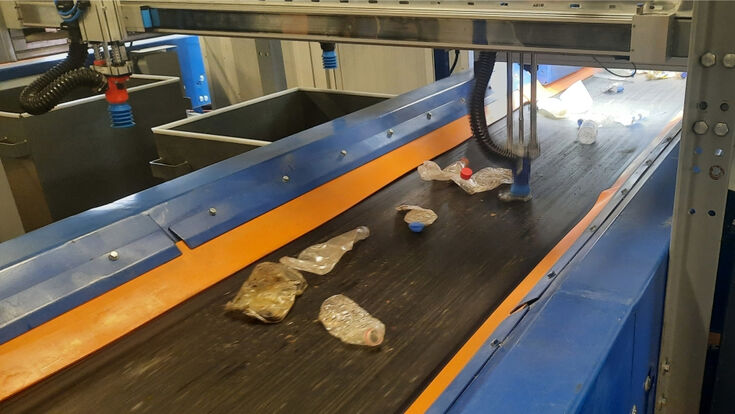Reclaim Waste Melbourne: Advanced Approaches for Effective Liquid Waste Removal
Enhancing Environmental Sustainability Via Strategic Fluid Waste Removal Solutions
In the world of ecological sustainability, the effective management of liquid waste stands as a critical focal point in protecting our ecological communities and protecting public wellness. Allow us embark on a journey to discover the transformative capacity of tactical liquid waste administration practices in enhancing environmental sustainability.
Significance of Fluid Waste Administration

Among the crucial reasons fluid waste management is necessary is its straight effect on public health and wellness. Unattended or improperly treated liquid waste can consist of damaging pathogens and chemicals that position significant health risks to neighborhoods. Polluted water resources can cause waterborne conditions, affecting both human health and ecological communities. Proper administration of liquid waste assists stop these wellness threats and ensures the well-being of the population.

Difficulties in Fluid Waste Disposal
Provided the critical value of correct liquid waste administration in safeguarding public health and wellness and ecological well-being, it is necessary to address the various obstacles related to liquid waste disposal methods. One substantial obstacle is the lack of sufficient facilities for the collection, therapy, and disposal of fluid waste. Many regions, particularly in establishing nations, have problem with not enough facilities and resources to handle the enhancing volume of fluid waste created. This brings about inappropriate disposal methods such as dumping in water bodies or unauthorized landfills, positioning major health and wellness dangers and environmental contamination.
One more obstacle is the visibility of dangerous substances in fluid waste, consisting of chemicals, hefty metals, and pathogens. Correct recognition and treatment of these hazardous parts need specialized knowledge and tools, which may not constantly be easily available. In addition, the expense of executing safe disposal techniques can be expensive for some communities and industries, bring about further and non-compliance environmental damages.
Sustainable Fluid Waste Solutions
Among the pressing demand for effective liquid waste administration methods, the imperative of sustainable services emerges as a vital problem for ecological conservation and public health. Sustainable liquid waste solutions incorporate a range of innovative technologies and practices aimed at decreasing the environmental impact of waste disposal.
Additionally, sustainable liquid waste services prioritize the conservation of water resources through the implementation of water recycling and reuse methods. By dealing with and repurposing wastewater for non-potable applications like watering or industrial processes, these solutions add to water preservation initiatives and minimize the stress on freshwater sources. Generally, the integration of sustainable fluid waste remedies not just supports environmental sustainability yet additionally promotes a healthier and more resistant culture for future generations.
Benefits of Strategic Removal Practices
Tactically carried out removal techniques play an essential duty in maximizing liquid waste management systems for ecological sustainability and public health and wellness protection. By taking on calculated removal techniques, organizations can significantly decrease the environmental impact of useful reference fluid waste disposal. One of the crucial benefits is the reduction of dangerous contaminants getting in water bodies, which assists in preserving marine environments and protecting drinking water sources - Reclaim Waste. Strategic elimination techniques likewise add to reducing the go to my blog threats of soil contamination, which can have long-lasting results on agricultural efficiency and biodiversity.
Additionally, these methods promote resource recovery by enabling the removal of beneficial products from fluid waste streams. Furthermore, calculated elimination methods can improve operational efficiency and cost-effectiveness by streamlining waste monitoring procedures and enhancing resource allocation.
Implementing Reliable Ecological Techniques
Effective implementation of environmental approaches is extremely important in accomplishing lasting liquid waste management techniques. To begin with, companies have to carry out detailed ecological evaluations to identify prospective risks and influences linked with their liquid garbage disposal procedures. By understanding the ecological ramifications of their procedures, organizations can create targeted methods to reduce injury to environments and public health.
In addition, carrying out effective ecological strategies includes setting clear objectives and objectives for liquid waste monitoring - Reclaim Waste Melbourne. These objectives need to specify, quantifiable, achievable, pertinent, and time-bound (WISE) to make certain accountability and track development in the direction of sustainability targets. Business can additionally leverage innovation and innovation to enhance fluid waste treatment processes, lower resource usage, and boost total efficiency
Partnership with governing agencies, stakeholders, and environmental specialists is an additional key aspect of effective approach implementation. By engaging with outside companions, companies can gain valuable insights, gain access to sources, and make certain Related Site compliance with environmental laws and guidelines. Overall, a critical and aggressive approach to environmental management is vital for alleviating ecological dangers and advertising long-lasting sustainability in fluid waste elimination methods.
Final Thought
In verdict, calculated fluid waste elimination solutions play an important function in enhancing environmental sustainability. By dealing with the difficulties in liquid waste disposal and implementing lasting techniques, we can lower the adverse effect on the atmosphere - Liquid waste removal. It is essential to focus on efficient environmental strategies to make certain the lasting health and wellness and wellness of our planet
By applying reliable waste administration practices, such as correct collection, treatment, and disposal methods, the threats connected with liquid waste can be significantly lowered.
Provided the crucial importance of correct liquid waste management in securing public health and wellness and ecological wellness, it is vital to deal with the numerous obstacles connected with fluid waste disposal methods. Sustainable fluid waste solutions include a range of cutting-edge innovations and techniques aimed at lowering the environmental influence of waste disposal.Strategically applied removal practices play an essential duty in maximizing liquid waste monitoring systems for ecological sustainability and public health and wellness protection. Generally, a strategic and positive approach to ecological administration is vital for reducing ecological risks and promoting lasting sustainability in fluid waste removal methods.